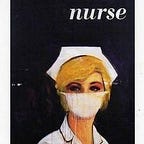Bedside Manner: Where Does It Come From?
Learn about the medical phrase “bedside manner” in English. Does this mean what we think it means?
Level: Intermediate
Duration: 15 mins
Theme: Medical English, Nursing English, Idioms
Tasks: Reading task, discussion questions, synonyms, mini-quiz
Teacher/Student Answers: Here.
In English when you say a doctor, nurse or other health professionals has a good “bedside manner” it is something positive.
However, in the past it is possible this idiom was actually something negative.
Pascal Tréguer at https://wordhistories.net has researched the first use of “bedside manner.”
His research suggests that it did not mean that a doctor was friendly and communicated well with patients. It meant, perhaps, that their appearance was considered more important than their skill. Because of this, they could attract rich clients. The phrase “bedside manner” was used to mock them.
Looking at old newspapers, Pascal finds that the idiom, in its earliest usages, was a kind of insult.
If you want to read the full article, you can find it here. Does your doctor have a good “bedside manner?”
Exercise 1
Look at the doctor in the cartoon above. Try to answer these questions, either writing down your answers or discussing them with a teacher:
- Is a doctor, nurse, or other health professional’s appearance important?
- Do doctors today need to attract rich clients?
- Should medical professionals be interested in earning money? Does this create problems in the healthcare sector?
Exercise 2
Here are some words that you can find above:
health professional, client, mock, usage, insult, communicated
Try to find their synonyms in the sentences below, and replaced them. You may need to add or change a preposition. Any other words you are unsure of, you can search for here:
- We may not like the style of the physiotherapist’s uniform. But she has no choice, so it’s not fair to taunt her.
- They informed the patient about the ECG showing some worrying patterns.
- The staff took the departmental changes as a great offence, because they were not told about them until the last minute.
- Although he appears to be a great clinician, I am worried that he is more interested in finding new patients than he is in helping the present ones.
- The health provider is their customer, but to be honest, you might be able to agree on a contract, as they are expanding their operation.
- The best practice is to apply the dressing after putting some cream around the wound.
Exercise 3
Firstly, answer the quiz questions.
Then, try to justify your reasons — either write some down or discuss with your teacher. Don’t forget to use words like - because, despite, although, but, so, however:
